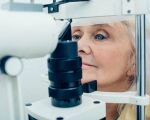
1. Understanding Contrast Sensitivity
Contrast sensitivity is a crucial aspect of our vision that allows us to distinguish objects from their backgrounds, especially under low-light or foggy conditions. Unlike visual acuity, which measures clarity of vision, contrast sensitivity reflects how well the eye detects subtle differences in shades and colors.
Knowing how to improve contrast sensitivity can significantly enhance daily life activities such as night driving, reading in dim light, and recognizing faces. Many individuals overlook this vital component of vision, yet its decline can impact safety and quality of life.
1.1 The Science Behind Contrast Sensitivity
Our eyes rely on photoreceptor cells in the retina to interpret light and dark differences. Aging, eye diseases like glaucoma or cataracts, and even prolonged screen exposure can reduce contrast sensitivity. Understanding this mechanism highlights why targeted efforts to improve it are important.
2. Factors Affecting Contrast Sensitivity
Multiple factors influence contrast sensitivity, some modifiable and others not. Recognizing these factors is the first step toward effective improvement:
2.1 Age and Health Conditions
Natural aging often reduces contrast sensitivity, while medical conditions such as diabetes or macular degeneration exacerbate the decline. Lifestyle diseases linked to poor circulation and nutrition can also impair visual performance.
2.2 Environmental Influences
Poor lighting, glare, and eye strain from extended digital device use can negatively affect contrast sensitivity. Habitual exposure to these conditions demands preventive measures and adjustments.
2.3 Eye Care and Corrective Measures
Improper or outdated eyewear prescriptions can reduce contrast perception. Ensuring appropriate vision correction tailored for contrast improvement is essential.
3. Proven Methods to Improve Contrast Sensitivity
Improving contrast sensitivity is achievable through a combination of exercises, lifestyle adjustments, and proper eye care:
3.1 Contrast Sensitivity Training Exercises
Specialized vision training programs focus on exercises that stimulate neural pathways responsible for contrast detection. For example, tasks involving pattern recognition with varying contrast levels can gradually enhance visual sensitivity.
3.2 Nutritional Support for Eye Health
Diets rich in antioxidants, vitamins A, C, and E, and omega-3 fatty acids support retinal health and improve visual function. Supplements targeted for eye health have shown positive effects in clinical studies.
3.3 Optimizing Lighting and Reducing Glare
Improving home and work lighting, using anti-glare lenses, and taking frequent breaks from screens help maintain optimal contrast sensitivity.
3.4 Regular Eye Checkups and Corrective Lenses
Timely eye exams can detect early issues affecting contrast sensitivity. Customized lenses designed to improve contrast, such as polarized or photochromic lenses, can be beneficial.
4. Real-World Examples and Personal Insights
Several individuals have shared inspiring stories of improved vision after focusing on contrast sensitivity:
4.1 A Senior’s Journey to Better Night Vision
One retiree reported significant improvement in night driving confidence after practicing contrast sensitivity exercises and updating her eyewear with lenses optimized for glare reduction. Her story highlights how simple changes can enhance daily safety.
4.2 Overcoming Digital Eye Strain
A graphic designer battling eye strain and decreased contrast perception integrated regular screen breaks, nutritional supplements, and vision therapy exercises. The result was clearer vision and reduced fatigue, illustrating the value of a holistic approach.
5. Professional Advice for Eye Health
Consulting eye care professionals is critical when aiming to improve contrast sensitivity effectively and safely:
5.1 Expert Evaluation and Customized Plans
Eye specialists can perform contrast sensitivity tests to identify specific deficits and recommend tailored treatment plans including exercises, lenses, or medical interventions.
5.2 Trusted Support from Eye Docs
For comprehensive eye care and expert guidance on improving contrast sensitivity, Eye Docs offers specialized services and products designed to enhance your vision quality. Their professional support can help you achieve lasting improvements and protect your eyesight.
Learning how to improve contrast sensitivity is a proactive way to maintain and enhance visual quality throughout life. With the right knowledge, habits, and expert assistance, clearer and safer vision is within reach.








